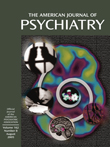To the Editor: Meta-analysis represents an “observational study of studies.” The benefits of random assignment and the removal of confounding bias within a sample are lost with meta-analysis, resulting in the problem of “heterogeneity” between study samples. Just as randomized clinical trials are more valid than observational studies, a meta-analysis of one to five randomized clinical trials is not necessarily more valid than one well-designed randomized clinical trial. This issue may be less relevant if studies agree, as it appears they did in the meta-analysis by Harm J. Gijsman, Ph.D., M.R.C.Psych., et al.
(1). However, this apparent agreement hides important unexplored heterogeneity, which does not invalidate the meta-analysis but can lead to its misinterpretation.
For instance, the only placebo-controlled study that found no evidence of acute antidepressant response is the only study, to our knowledge
(2), in which all patients received baseline lithium. Among other studies, one
(3) nonrandomly assigned 37% of the patients in the antidepressant arm to lithium versus 21% in the placebo arm—a relative 77% increased lithium use in the antidepressant arm—hardly a fair assessment of fluoxetine versus placebo. Two compared antidepressant alone to placebo alone, and one large study (58.5% of all meta-analysis patients)
(4) compared olanzapine plus fluoxetine to olanzapine alone (“placebo” improperly referred to olanzapine plus placebo). These studies may suggest acute antidepressant efficacy compared to no treatment or olanzapine alone but not compared to the most proven mood stabilizer, lithium, which is also the most relevant clinical issue.
Regarding antidepressant-induced mania, two studies comparing antidepressants without mood stabilizer to no treatment (placebo only) reported no mania in any patients: an oddity, if true, since it would suggest that even spontaneous mania did not occur while those patients were studied or that perhaps manic symptoms were not adequately assessed. As described, another study preferentially prescribed lithium more in the antidepressant group
(3), providing possibly unequal protection against mania. Although the olanzapine-fluoxetine data suggest no evidence of switching while using antipsychotics, in our reanalysis of the lithium-plus-paroxetine (or imipramine) study, there was a threefold higher manic switching rate with imipramine versus placebo (risk ratio=3.14), with asymmetrically positively skewed confidence intervals (0.34–29.0). Combined with other studies reviewed that showed higher tricyclic antidepressant switching rates than other antidepressants, attention to this heterogeneity suggests that one cannot rule out antidepressant switching.
Finally, these short-term (up to 10 weeks) studies are only relevant, if at all, to the acute depressive episode. Contrary to the highly selective review in the discussion, they do not provide any evidence to support long-term maintenance use of antidepressants in bipolar disorder, which was previously shown ineffective in multiple randomized clinical trials in a systematic review
(5).
In summary, our critique touches partly on the validity of this meta-analysis, but more importantly, on its generalizability due to unexplored heterogeneity. Apparent agreement among studies hides major conflicting results between the only adequately designed study using the most proven mood stabilizer, lithium, and the rest. It would appear that the rosy conclusions of the meta-analysis are premature when the clinical options involve use of proven mood stabilizers, such as lithium, with or without antidepressants.

